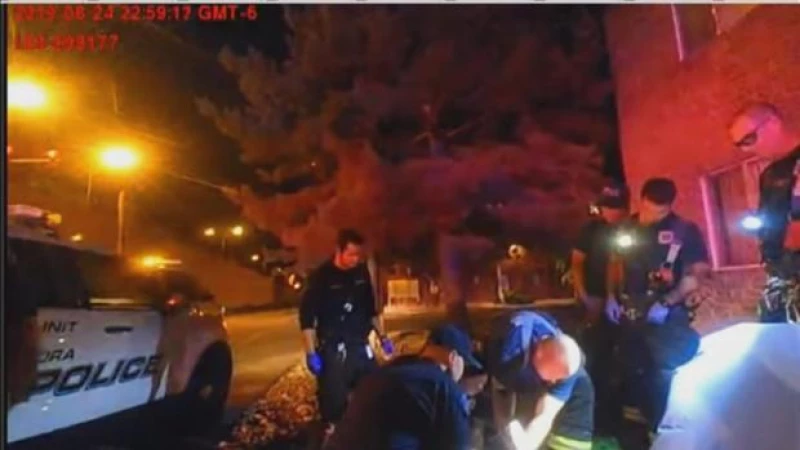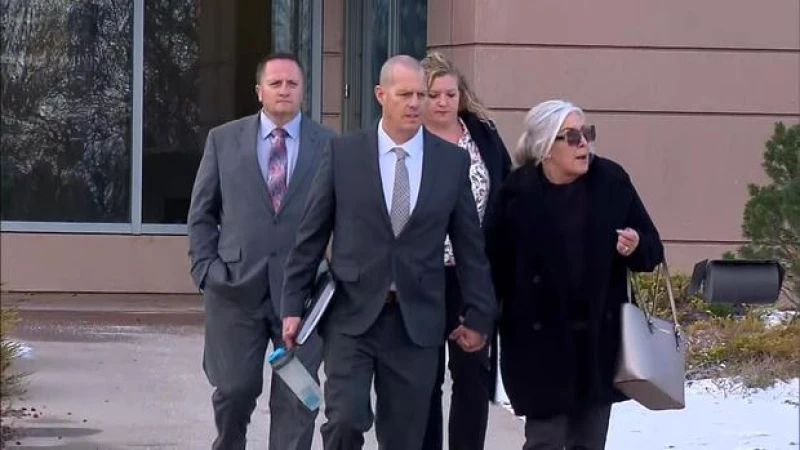Paramedics Found Guilty in Death of Elijah McClain
A jury in Colorado has delivered a verdict of guilty for two paramedics charged with criminally negligent homicide in the tragic death of Elijah McClain. The 23-year-old Black man was walking home in 2019 when he was confronted by police officers who restrained him and then injected him with ketamine. McClain went into cardiac arrest shortly after and passed away three days later.

The paramedics, Jeremy Cooper and Peter Cichuniec, were convicted on charges of criminally negligent homicide. Cooper was acquitted of the counts of second-degree assault, while Cichuniec was found guilty of second-degree assault- unlawful administration of drugs and not guilty on the other second-degree assault charge.
Following the verdict, Cichuniec was taken into custody immediately.
The cause of McClain's death was initially undetermined by the coroner's office in Adams County. However, after widespread social justice protests, a medical examiner concluded that McClain died from complications of ketamine due to the forcible restraint. This led to the indictment of three police officers and the two paramedics in 2021.
The use of a sedative during the trial of Cooper and Cichuniec has been a subject of scrutiny. Colorado state regulators had previously approved the drug for use on individuals in an agitated state and showing signs of excited delirium. The defense argued that the paramedics were following their training by administering ketamine to McClain, who was displaying unusual strength and behaving strangely while being restrained.
Cooper and Cichuniec claimed that they were never warned about the possibility of ketamine causing death and were taught that it was a safe drug.
"We were taught that it is a safe drug and it will not kill them," said Cichuniec during his testimony.

Both paramedics testified that the police officers did not fully inform them about McClain's condition when they arrived at the scene. One paramedic stated that they felt the need to quickly provide care after witnessing the officers slam McClain to the ground. However, the officers did not inform them that they had placed McClain in a neck hold.
During their testimonies, prosecutors questioned Cooper and Cichuniec about the guidelines set in their medical training regarding the administration of ketamine to agitated individuals with excited delirium. Ketamine is a weight-based drug, and the amount given to McClain was appropriate for someone weighing over 200 pounds. Cooper estimated McClain's weight to be around 200 pounds, but in reality, McClain weighed closer to 140 pounds.
Cichuniec testified in court that McClain received the maximum dose of ketamine due to his agitated state, emphasizing that it was done in an effort to save McClain's life. "In this case, with excited delirium, it could kill you," Cichuniec stated. "If we don't work fast, he could die. ... Time is of the essence. I went off training and went up to 500 (milligrams)."
There is ongoing debate regarding the validity of excited delirium as a medical condition.
David Goddard, the attorney representing Cichuniec, argued that it was "entirely reasonable" for the paramedics to believe that McClain was experiencing excited delirium and required ketamine. He based this assertion on witnessing McClain being restrained by three officers and the descriptions of his behavior provided by the police. "They're told by police that Mr. McClain was demonstrating incredible strength, crazy strength," Goddard explained. "That information fits squarely within the signs and symptoms of excited delirium."
The prosecution raised concerns about the paramedics' decision not to ask McClain any questions prior to administering the ketamine. Cooper, one of the paramedics, testified that he chose not to do so in order to avoid escalating the situation.

In closing arguments, Colorado Solicitor General Shannon Stevenson argued that the paramedics failed to perform basic medical checks on McClain, such as taking his pulse, before administering the ketamine.
According to Stevenson, there was no valid reason to not evaluate Mr. McClain. Additionally, there was no justification for administering a sedative to someone who was not responsive. The defendants were aware of the risks associated with giving an overdose of ketamine.
It is uncommon for medical first responders to face criminal charges.
This case marked the third and final trial for the five first responders who were accused in the death of McClain. The Aurora Police Department had three officers on trial in connection with McClain's death. Two of them were acquitted, while the third was found guilty.
A jury has convicted Randy Roedema of criminally negligent homicide and third-degree assault. On the other hand, Jason Rosenblatt was acquitted of manslaughter and assault in October. Roedema is scheduled to be sentenced on January 5th at 1:30 p.m. in Adams County Court.
Another jury found Nathan Woodyard not guilty of manslaughter and criminally negligent homicide in the death of the 23-year-old. Following the verdict, Woodyard has returned to the Aurora Police Department.
In 2021, the City of Aurora agreed to pay $15 million to settle a lawsuit brought by McClain's parents.







